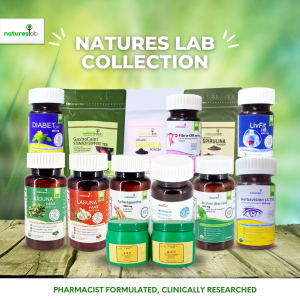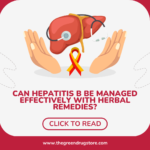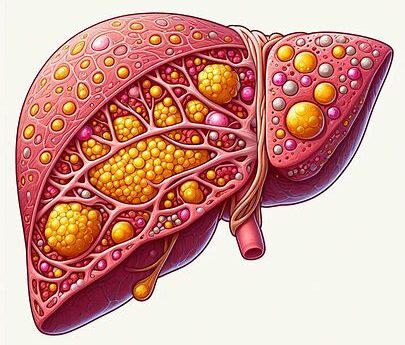Cholera outbreaks can be devastating, especially in underdeveloped and developing countries. As Nigeria faces a current cholera outbreak, it’s essential to take preventive measures and explore natural remedies that can help protect you and your loved ones.
What is Cholera?
Cholera, an acute diarrheal illness caused by the bacterium Vibrio cholerae, remains a significant public health issue in many parts of the world. The disease is primarily spread through contaminated water and food, often in areas with inadequate sanitation and poor water quality. Despite its potential severity, cholera is both preventable and treatable. This article provides an in-depth look at the symptoms, treatment, and preventive measures associated with cholera.
In this article, we’ll discuss some effective herbal remedies and safety tips to stay safe during this challenging time.

Recognizing the Symptoms of Cholera
Symptoms can manifest rapidly, ranging from mild to severe. They typically appear within a few hours to five days after ingesting the contaminated substance. The hallmark symptoms include:
Profuse Watery Diarrhea: Often described as “rice-water stools” because of its appearance, this diarrhea can be extremely voluminous, leading to rapid dehydration.
Vomiting: This often accompanies diarrhea and exacerbates fluid loss.
Severe Dehydration: Symptoms of dehydration include dry mouth, excessive thirst, reduced urine output, sunken eyes, and wrinkled skin. Severe dehydration can lead to shock and, if untreated, death.
Muscle Cramps: These result from the rapid loss of fluids and electrolytes.
Prompt recognition of these symptoms is crucial for timely treatment, which can be life-saving.
Causes and Risk Factors of Cholera
It is an acute diarrheal illness caused by the bacterium Vibrio cholerae. It primarily affects the small intestine and spreads through contaminated food or water. Here are some key points about cholera:
1. Transmission: The bacterium spreads from person to person through the fecal-oral route. Contaminated water sources (such as wells, lakes, and rivers) and street-vended foods are common vehicles for transmission.
2. Symptoms: Within a week of ingesting the bacteria, symptoms may appear, ranging from mild to severe. Profuse watery diarrhea is a hallmark sign of cholera.
3. High-Risk Groups: Children under the age of 5 are particularly vulnerable.
How Can You Manage Cholera Effectively
The cornerstone of treatment is rapid rehydration to replace lost fluids and electrolytes. Key components of effective management include:
Oral Rehydration Solutions (ORS): ORS, a mixture of clean water, salts, and sugars, is essential for treating dehydration. It can be administered at home or in healthcare settings.
Intravenous Fluids: In severe cases where patients cannot drink enough ORS, intravenous fluids may be necessary.
Antibiotics: While rehydration is the primary treatment, antibiotics can shorten the duration of illness and reduce the severity of symptoms. Common antibiotics include doxycycline, azithromycin, and ciprofloxacin. However, their use should be guided by local health recommendations to avoid antibiotic resistance.
Zinc Supplements: For children, zinc supplements are recommended as they can reduce the duration and severity of diarrhea.
Nutritional Support: Continued intake of nutritious food and fluids is important for recovery, especially in children and vulnerable individuals.
Herbal Remedies for Cholera
While seeking medical attention is crucial during an outbreak, natural remedies can complement conventional treatment. Here are some herbal options:
1. Guava Root Bark:– Guava root bark has significant antibacterial effects. It contains complex polyphenolic compounds known as tannins, which act as free radical scavengers. – Prepare a concentrated decoction using guava root bark and consume it to support healing.
2. Onion: – Onions have various medicinal properties, including anti-inflammatory, anti-diarrhea, and antibiotic effects. – Incorporate onions into your diet to boost your immune system and aid recovery.
3. Cucumber Leaves and Coconut Water: – Make fresh juice from cucumber leaves and mix it with coconut water. – This combination helps maintain hydration and provides essential nutrients during illness.
4. Lemon Juice: – Lemon juice is another valuable home remedy for cholera. – Its high vitamin C content supports the immune system and promotes recovery.
5. Cloves: – Cloves have antimicrobial properties and can be beneficial during cholera. – You can consume cloves directly or use them in cooking.
Safety Tips to Prevent Cholera
1. Boil Water: Ensure that drinking water is properly boiled or treated to eliminate any contamination.
2. Avoid Street-Vended Foods: Be cautious when consuming food from street vendors, as it may be contaminated.
3.Wash Fruits and Vegetables: Wash fruits and vegetables thoroughly with clean water before eating.
4. Hydrate: Stay hydrated by drinking clean water, tender coconut water, herbal teas, and orange juice.
5. Hand Hygiene: Wash your hands frequently with soap and water, especially before eating.
6. Seek Medical Help: If you experience symptoms like severe diarrhea, vomiting, and dehydration, seek medical attention promptly. Remember that natural remedies should complement medical care, not replace it. Consult a healthcare professional if you suspect cholera or experience any symptoms.
By staying informed and taking preventive measures, we can collectively combat the cholera outbreak and protect our communities. Stay safe and take care!##
Visit our Shop for Herbal Supplements for all Health Issues

![]()





